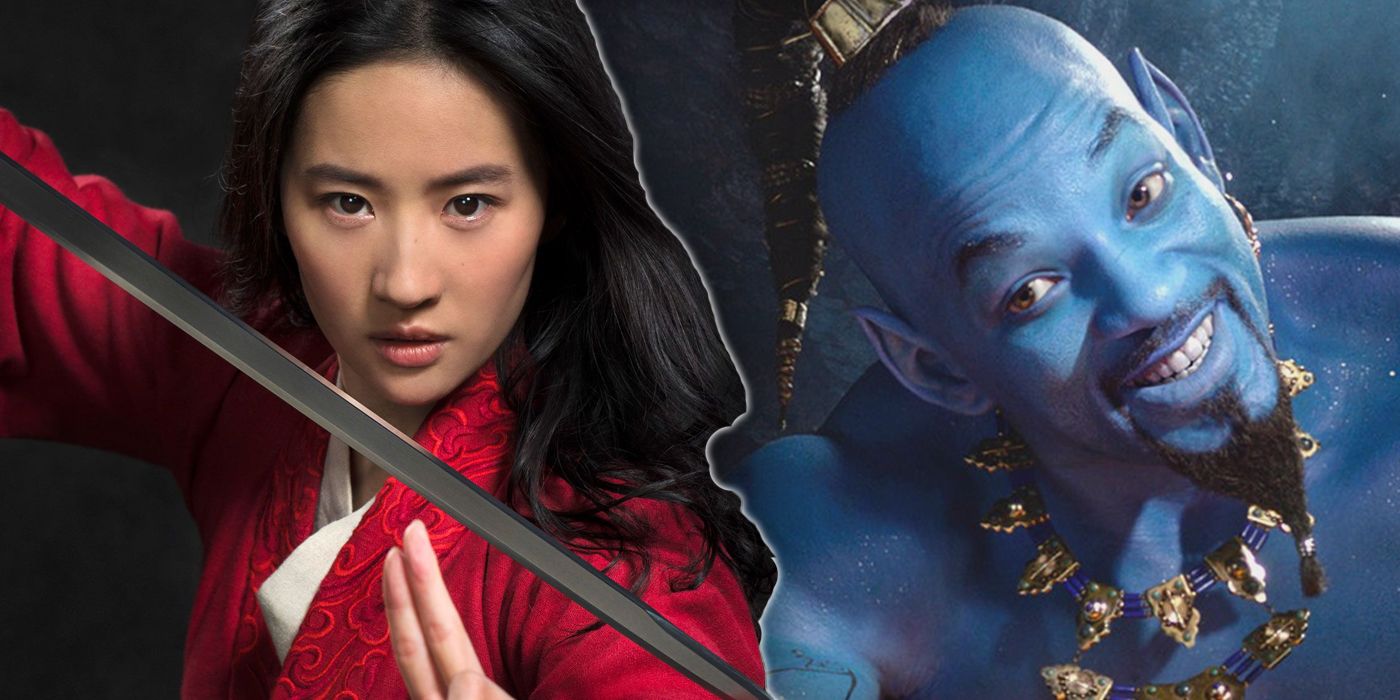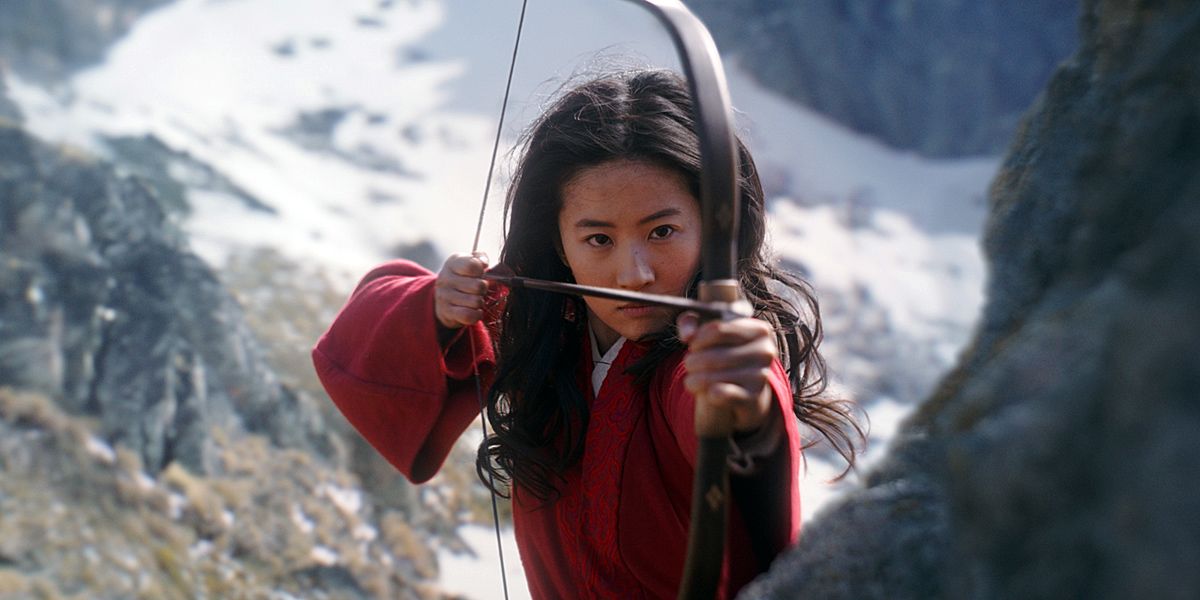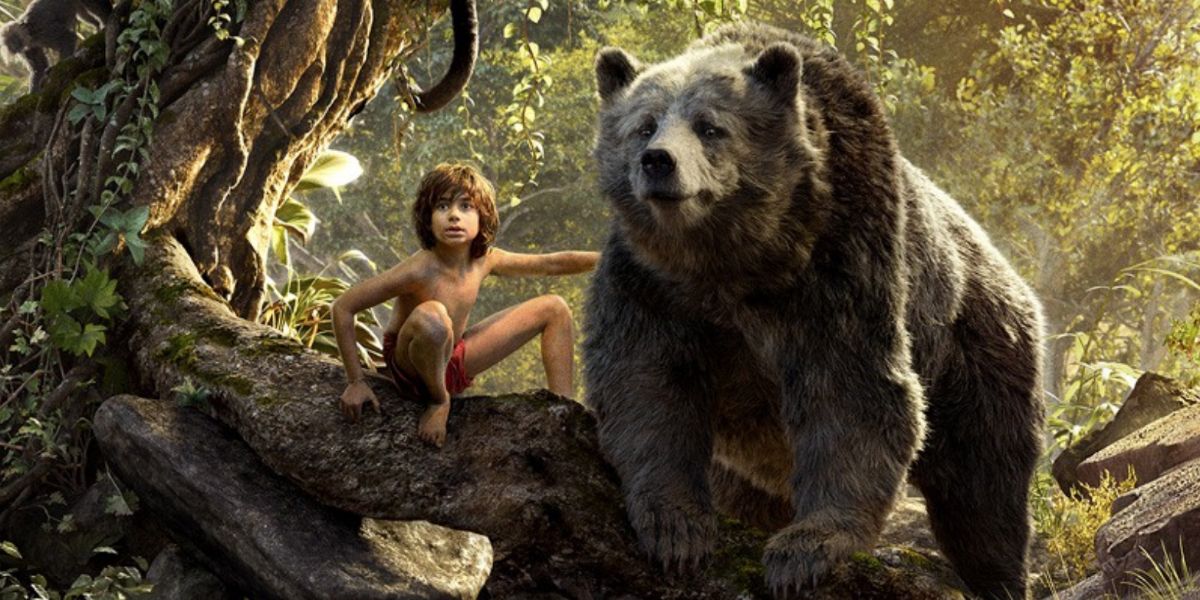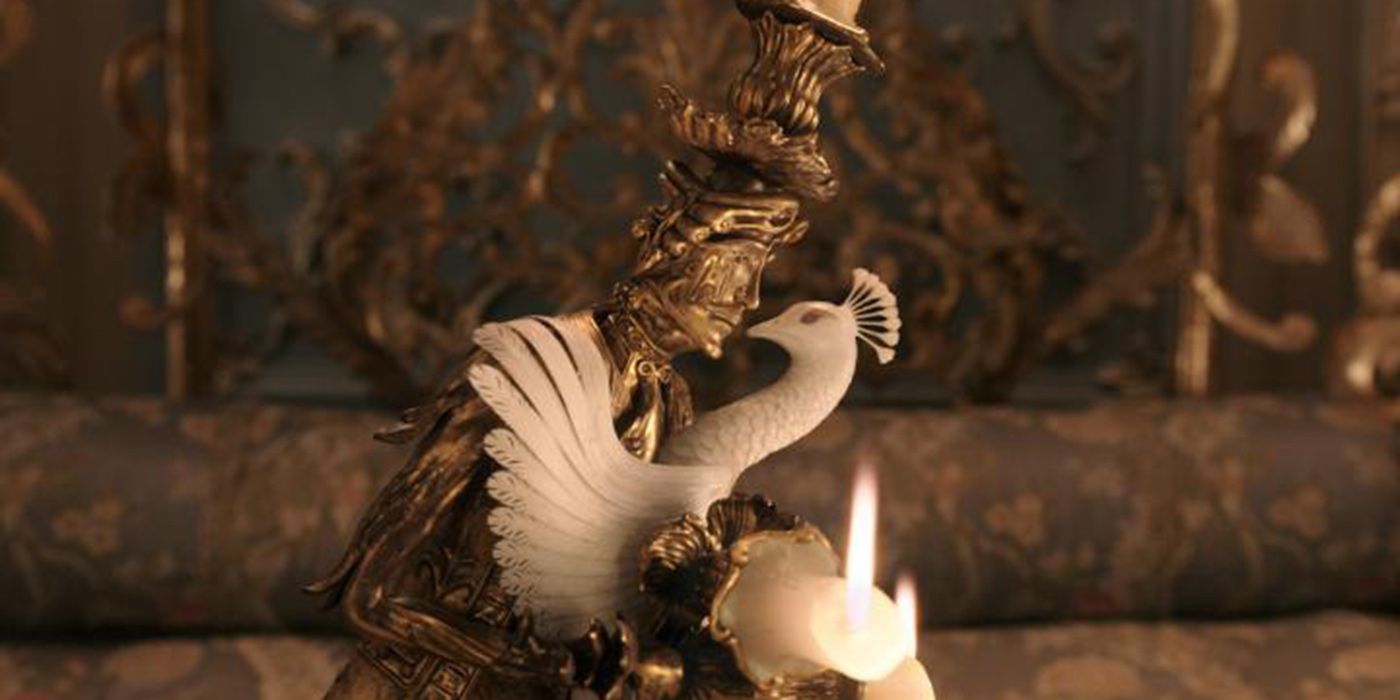While Aladdin is about to leave theaters, even as The Lion King arrives, both films deliberately marketed themselves as faithful, nostalgia bait for longtime Disney fans. This falls in line with the entertainment giant's previous rehashes of Beauty & The Beast and Cinderella, with their heavy use of shot-for-shot replica footage.
On the other hand, Mulan takes the exact opposite approach with its recent trailer, making the film look less like a live-action version of the 1998 animated musical and more like a completely fresh, martial arts-infused take on the original Chinese legend. It appears to be an even greater diversion from the Disney source material than Tim Burton's recent reimagining of Dumbo and his 2010 Alice in Wonderland, the billion dollar-grossing hit that greased the wheels of this barrelling remake freight train.
It's impossible to tell at this point whether the upcoming The Little Mermaid will fall into either of these camps -- or into a completely new one -- which is indicative of a wider problem across Disney's live-action remakes: There's just no consistency to them.
We're not talking about consistency in terms of creative content here; the kind of "cookie-cutter" moviemaking Marvel Studios, on Disney's dime, has been criticized for. Tonally, Disney's live-action adaptations adhere very strictly to the animation house's own "cookie-cutter" method, which is built around family-friendly, morally-minded storytelling. We're talking about a clear, cohesive mission statement of intent that goes beyond earning an easy buck at the box office.
In short, what is the point of all these films as... films? What value do these films have as pieces of cinematic art?
The point, according to Sean Bailey, the president of motion picture production since 2010 at Disney, is to strengthen the company brand, which has been built on the backs of colorful and charismatic characters. In fact, Disney's acquisition of other powerhouse brands like Star Wars and Marvel was key to Bailey's creation of this strategy. "We thought if Iron Man and Thor and Captain America are Marvel superheroes, then maybe Alice, Cinderella, Mowgli and Belle are our superheroes, and Cruella, Maleficent are our supervillains," Bailey told Vulture.
"Maybe there's a way to reconnect with that affinity for what those characters mean to people in a way that gets the best talent and uses the best technology, that could become something really exciting," said Bailey. "It feels very Disney, playing the competitive advantages of this label."
So, it really is just about money. But what else would you expect from a studio that has come to dominate the year-round blockbuster release schedule? This model is a proven way to create box office success, especially compared to some of Disney's other productions. Why risk another financial failure like Tomorrowland or A Wrinkle In Time when a computerized, star-studded remake of The Jungle Book can gross just under the billion dollar mark? Time and time again, we've given the studio a pat on the back with our wallets while anonymously trashing their "unoriginal" business model online.
Having said that, Aladdin hasn't quite matched The Jungle Book's haul from 2016, and Dumbo, which was released just two months prior, made a relatively disappointing $352 million worldwide. With Dumbo, Disney learned the hard way that, while audiences view Mowgli as a top-tier character, like Captain America is for Marvel, its sweet little flying elephant is no Steve Rogers.
Trading on brand familiarity and technological novelty isn't a surefire bet. A lot of remakes, sequels and franchise continuations do very well, but many of them also do quite badly. This is where a clear and consistent statement of intent could help. Part of the reason why cinemagoers generally don't mind Marvel Studios' repetitiveness -- borrowed from its formulaic, long-running source material -- is that, in place of familiarity with Marvel's extensive roster, which only a comparative minority have, there's an ever present sense of purpose: The brick-by-brick and scene-by-scene construction of a cinematic universe. We know what the function of the MCU is, from an artistic standpoint.
Disney, as much as many want it to, isn't retrofitting a shared universe of its own onto these remakes. But its relentless release schedule gives off the impression that, at the very least, some kind of collective library is being established. Unlike other major motion picture studios, it's virtually impossible to judge these films without comparing them to one another, despite their not being internally connected. Comparing these remakes to each other becomes even more difficult when there's no unified standard with which to hold them.
Until there is, public opinion will continue to be polarized. We didn't ask for a blue Will Smith, a disturbingly realistic Lumière and a music-less Mulan, but we're stuck with them and, as a result, our complicated feelings about whether or not they should exist. It's why we can decry The Lion King for being too much of a carbon copy of the original and then levy the opposite criticism at Mulan. Live-action superhero media fulfills a preexisting desire for fans to see their favorite characters in the flesh. Disney fans have always been content watching the same old cartoons over and over, and it's hard to know what you want from something you never asked for.
There is, however, one glaring thing we're forgetting. Disney has been consistent in its effort to make these remakes more inclusive. Cinderella added people of color to the prince's staff; Beauty & The Beast attempted to include an "exclusively gay moment;" Aladdin gave Princess Jasmine a stronger, feminist grounding and made the story more culturally sensitive; while The Little Mermaid's Ariel casting is a much-needed injection of diversity in an overwhelmingly white film. This renewed need for cultural authenticity might also be the driving force behind Mulan's radical departure from its original Disney iteration.
Perhaps some rebranding is in order. A more accurate description of these live-action/CGI reimaginings isn't "remakes," but "updates," a descriptor that might better communicate why they're necessary, but is a very loaded term for the the kind of people who have a hard time accepting that fictional creatures like mermaids can be black.
Remaking something with the intent of giving it renewed relevancy should always be the most important goal, creatively speaking, of any kind of new version of something. Disney remakes are not something we ever wanted. Disney updates, however, seem to be something we need.




